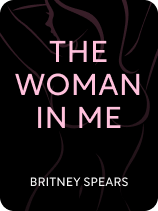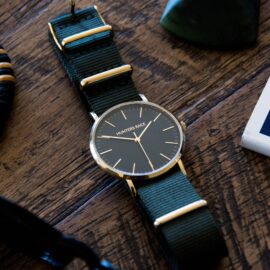

This article is an excerpt from the Shortform book guide to "The Woman in Me" by Britney Spears. Shortform has the world's best summaries and analyses of books you should be reading.
Like this article? Sign up for a free trial here.
What are the most inspiring The Woman in Me quotes? How did Britney Spears persevere through a messy divorce, media scrutiny, and a controlling conservatorship?
There’s no denying that pop star sensation Britney Spears has had an eventful life. She airs out all of her best and worst moments in The Woman in Me, a memoir detailing her rise to fame.
Take a look at the best quotes from The Woman in Me to get the main ideas.
The Woman in Me Quotes
Since her first hit song, Britney Spears has been a pop music icon. She’s won MTV Awards and a Grammy, millions of fans have attended her concerts, and she’s become one of the all-time best-selling musicians. However, behind the scenes, Spears has lived a life of turmoil, emotional trauma, and never-ending scrutiny in the public eye. When she bent under the strain of that pressure, Spears’s father took control of her life while exploiting her for financial gain.
The Woman in Me is Spears’s memoir of her career and private life, from the joy she’s found to the trauma she’s endured. We’ll explore the most inspiring The Woman in Me quotes to capture Spears’s struggles and her perseverance through dark times.
“I wanted to hide, but I also wanted to be seen. Both things could be true.”
With her marriage with Kevin Federline seemingly doomed, Spears’s attorney advised her to file for divorce before Federline did. Supposedly, this would spare her the humiliation of being publicly dumped for a second time. According to Spears, this was a mistake. Once again, the media painted Spears as the villain for splitting up a young family. Federline told the press that Spears was an unfit mother as they both sued for custody of their children. The media put everything Spears did under a microscope without giving Federline the same treatment.
In an act of rebellion, Spears shaved her head, throwing away her “good girl” image, a choice that the tabloids pounced on. She tried using wigs to go incognito, but photographers followed her every step, even as Federline refused to let her see her children. Feeling the weight of all these pressures, Spears’s composure in public began to slip. She describes an incident when a photographer provoked her and she attacked his car with an umbrella, giving the press the reaction they wanted. After this, her parents forced her into rehab for substance abuse (possibly for overusing her prescription Adderall, though Spears doesn’t specify). She insists her problem wasn’t substance abuse—her problem was not being allowed to work through her depression and grief like a normal human being.
“I had to pretend the whole time I was okay. If I became flustered, it was taken as evidence that I wasn’t improving. If I got upset and asserted myself, I was out of control and crazy.”
One of the things Spears’s father required in her conservatorship was that she go on tour and make appearances on TV. Spears draws attention to the contradiction of claiming that someone’s too sick to make decisions but is healthy enough to learn dance routines, endure an exhausting tour schedule, and present herself well in front of the camera. On tour, she pretended to be an adult on stage, but once her shows were over, she was treated like a heavily chaperoned child. Spears wasn’t even allowed to decide what she ate. When one of her hairdressers commented on Spears’s insane schedule, they were fired the next day. No one was allowed to question Spears’s father.
When a deal came along in 2013 for Spears to do a multi-year residency in Las Vegas, her fans were welcoming, and her show attracted a younger audience than Vegas usually receives. However, Spears’s enjoyment wouldn’t last. She writes that her boyfriend at the time gave her over-the-counter energy pills that greatly improved her performance on stage, but her father, who had control of her body, sent her into rehab, even though the supplements were legal and available to anyone. In a 2014 bid to break free from her father, she pleaded with the court to test him for drug and alcohol use, but her request was summarily denied.
Spears’s Las Vegas concert series sold nearly a million tickets during its run, enriching her father, her management company, and anyone else connected to the “Britney Spears industry.” Spears states that while others were profiting from her work, she was only given an allowance of $2,000 per week, which she could only spend with her father’s permission. As the end of the Vegas residency approached, she pleaded for time off to spend with her children, but instead, her father and managers ordered that she start touring again right away. Her father promised that if she refused, he would humiliate her in court for breaching the terms of her conservancy.
“You have to speak the thing that you’re feeling, even if it scares you. You have to tell your story. You have to raise your voice…Even in the darkest night, you can still find so much light.”
Spears reached out to her fans through social media—first, to show she was alive, and then to let people see her as a person and not an entertainment property. The Covid pandemic gave her a respite during which she focused on self-improvement work and strengthening her relationship with God. She insistently called her court-appointed attorney to work toward ending her conservatorship, but her lawyer provided little assistance. Left with no other recourse, on June 22, 2021, Spears called the police to report that she was being abused.
On the following day, Spears made a statement to the court that was broadcast online for all to hear. In it, she described the conditions she’d lived under and her prior efforts to end her conservatorship. Learning that she’d been lied to about her rights to a private attorney, Spears hired a new lawyer who devised a two-step plan—first, to petition for her father’s removal as conservator, and then to end the conservatorship altogether. In September 2021, the court stripped Spears’s father of control of her life. In November, the conservatorship ended completely, and Spears received the news that after 13 years, she was a free woman again.
“Think of how many male artists gambled all their money away; how many had substance abuse or mental health issues. No one tried to take away their control over their body and money. I didn’t deserve what my family did to me.”
Misogyny can be found along any career path, but in show business, its power is shown in stark relief. Spears discusses how the media puts an excessive focus on women’s bodies, how male artists demonize women to advance themselves, and how male performers are allowed to act in ways for which women are often condemned.
Spears recalls that from the start of her career, she noticed that the interview questions she received were heavily focused on her appearance, while her male contemporaries were asked about other topics. Spears was often criticized for appearing too sexy while also being chastised for any blemish in her looks. During and after her pregnancy, the press hounded her about whether she’d regain her youthful beauty. All through her life, Spears says that others have treated her body as something they had a right to criticize and control.
Putting women down isn’t restricted to the press. Spears writes that she experienced this when Timberlake used a distorted depiction of their romance to increase publicity for his new album, boosting his image by tarnishing hers. Timberlake never mentioned his cheating on Spears, and neither did Federline when he painted Spears as an unfit wife and mother while promoting his debut album. Tellingly, the press didn’t interrogate the men in Spears’s life about their failings as it often does to women in the same situation.
In general, Spears points out that male performers in the entertainment business are held to a lower standard than women. Even worse, men’s bad behavior is often celebrated as part of the “sex, drugs, and rock ‘n roll” lifestyle. Male artists are rarely, if ever, shamed for lewd behavior, drug use, and wild parties—rather, for them such things are status symbols. Further, while some male artists have paid a price for their behavior, none have had their personal freedoms taken away as Spears’s were for anything short of outright criminal actions.

———End of Preview———
Like what you just read? Read the rest of the world's best book summary and analysis of Britney Spears's "The Woman in Me" at Shortform.
Here's what you'll find in our full The Woman in Me summary:
- The key takeaways of Britney Spears' memoir about her career and private life
- How the media's portrayal of Spears differed from her experiences
- How the music industry treats women differently than men






